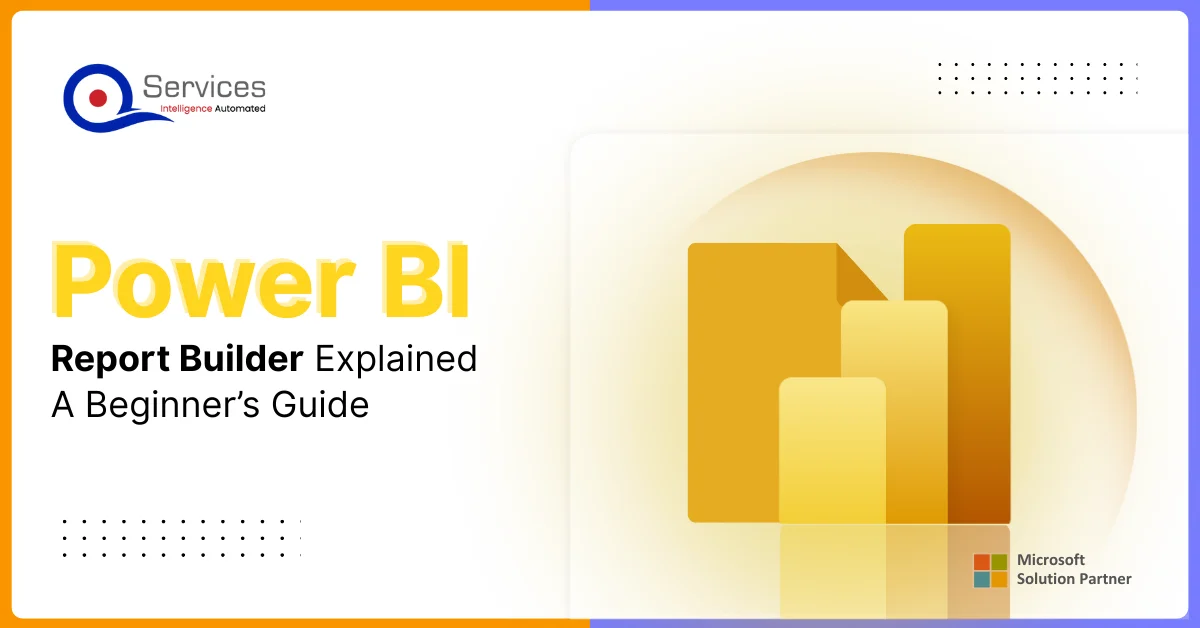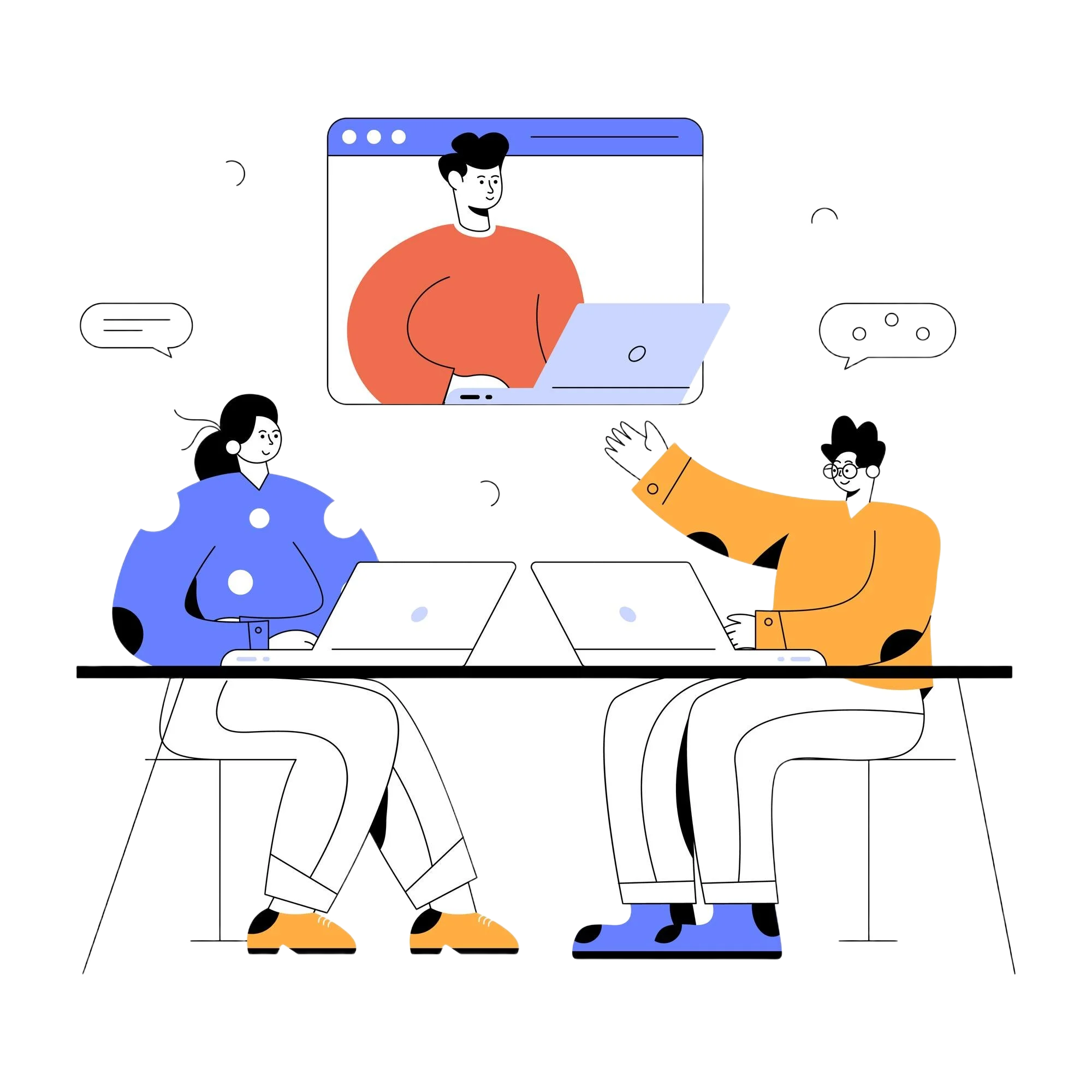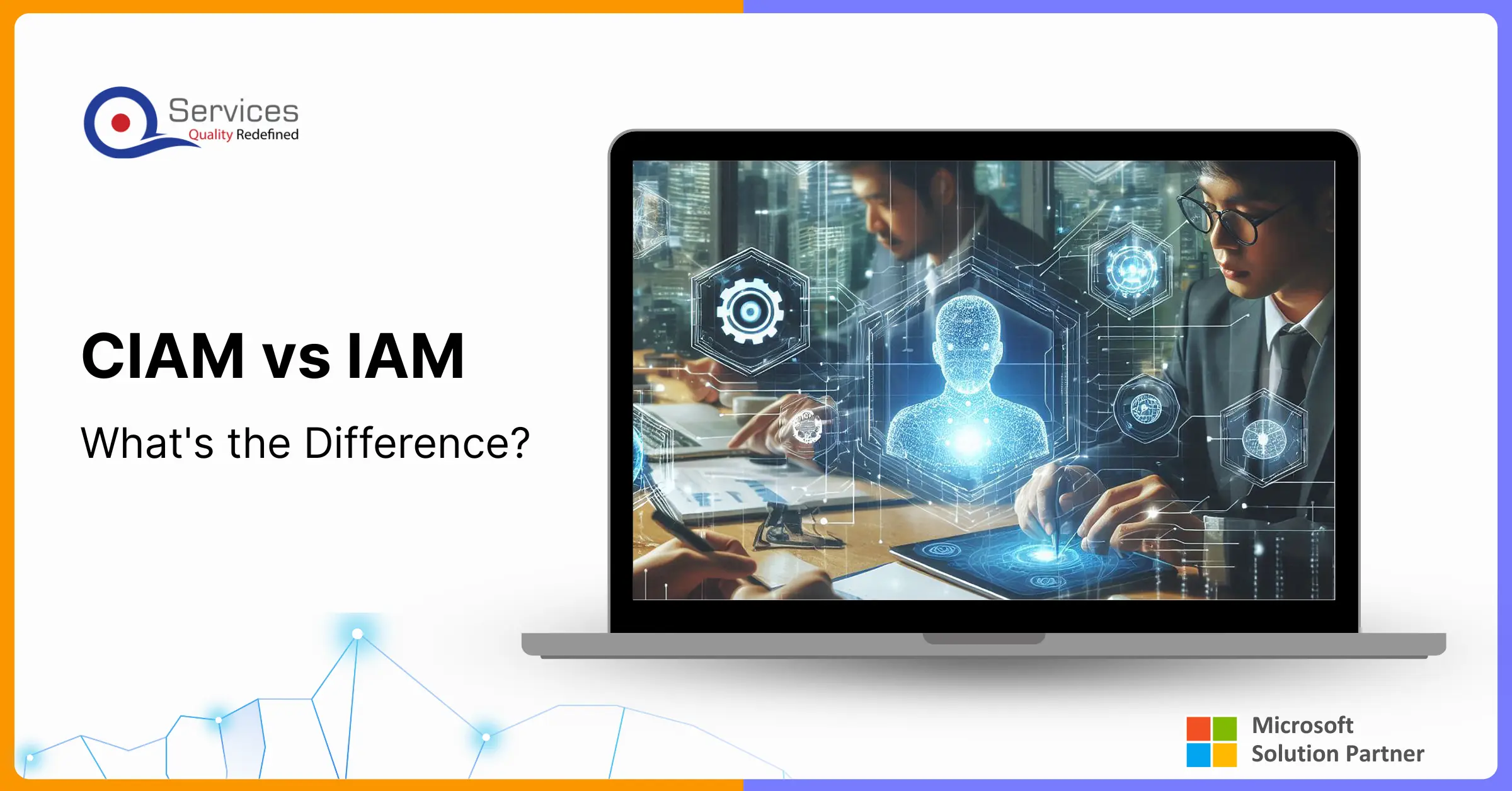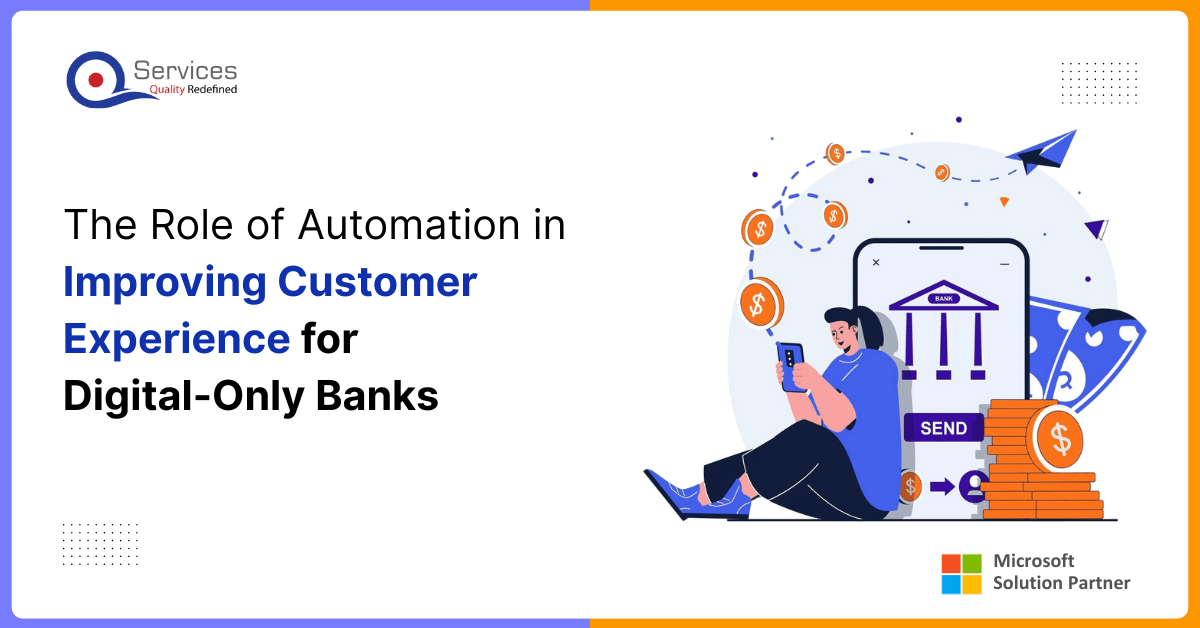
Home » Artificial Intelligence – The Future with AI Marketing Automation

Imagine a world where businesses know what you want before you do. Impressive? Definitely. That’s what artificial intelligence (AI) is doing in marketing right now.
We’re no longer talking about “someday in the future.” AI is already shaping the way brands connect with people more personally than ever before. From helping you see the exact ad you needed to automating hundreds of marketing tasks in the background, AI is changing the marketing game.
According to Gartner, by 2025, 80% of marketers who have invested in AI will shift from traditional personalization to hyper-personalization.
This change is transformational. Whether you’re a business owner, a marketer, or simply a curious mind, it’s time to understand how phenomenal AI is.
AI marketing automation behaves as an assistant for your marketing system. It learns from customer data, adapts in real time, and executes significant tasks (like sending emails, showing ads, or analyzing behavior) without needing someone to push the buttons every time.
Some examples you already see every day:
That’s marketing AI in action — working quietly in the background yet completely transforming how we engage with brands.
Let’s talk about real impact:
AI doesn’t just store data — it understands it. It can analyze millions of data points in seconds and figure out things like:
This insight helps businesses market smarter — not harder.
AI doesn’t sleep. While you’re dreaming about beach vacations, AI bots are:
This is where generative AI for marketing is stepping up. Tools like ChatGPT or Jasper are writing emails, ads, even social media posts — all tailored to target audiences in seconds.
We’re entering a phase where AI doesn’t just react — it predicts.
Imagine this:
That’s not magic. That’s AI-powered predictive and generative marketing in action.
And this is only the beginning. The future of AI in marketing is being driven by AI marketing trends that focus on hyper-personalization, real-time decision-making, and zero manual work for repetitive tasks.
AI in marketing is not only for tech giants having million-dollar budgets. Thanks to platforms like HubSpot, Salesforce, and even Canva, AI-powered marketing automation is now accessible to everyone, even small businesses and solo entrepreneurs.
So, where do you start?
Let AI handle the boring, repeatable stuff like:
This isn’t just about saving time. It’s about freeing up your team’s creativity while AI marketing trends take care of the heavy lifting.
61% of marketers say AI is the most important aspect of their data strategy. – Salesforce
One of the most powerful uses of marketing AI is personalization. But not the old-school “Hi [First Name]” kind. We’re talking about:
That’s AI marketing automation working in real-time, not months later during a marketing review.
And as AI gets smarter, generative AI for marketing is playing a bigger role. It can create unique landing page headlines, product descriptions, and even email subject lines based on what a specific user might respond to best.
This kind of automation was nearly impossible a few years ago. Now it’s becoming the industry standard.
Get free Consultation and let us know your project idea to turn into an amazing digital product.

Let’s talk ads — because this is where AI is really flexing its muscles.
Traditionally, advertisers would create a few versions of a campaign, launch it, then wait for results. Today, AI in advertising is completely flipping that model.
AI tools now:
No wonder companies using AI in advertising are seeing up to 40% better ROI compared to those using traditional methods.
“AI won’t replace marketers. But marketers who use AI will replace those who don’t.”
– Paul Roetzer, Founder, Marketing AI Institute
As we heard in the session you shared, there’s a shift happening: from marketing to humans to marketing in a world where agents (AIs) make many decisions for us — like recommending a product, managing preferences, or choosing the fastest delivery option.
This is the emerging world of agentic marketing.
In this loop:
As powerful as AI marketing automation is, it’s not without its challenges. With great power comes great responsibility — and businesses need to tread carefully.
AI feeds on data. But with privacy concerns on the rise, marketers must:
People are becoming more aware of how their data is used — and trust can be lost in a click. The goal is to create personalized experiences without crossing ethical lines.
AI models are only as good as the data they’re trained on. That means:
Responsible AI marketing isn’t just about performance — it’s about fairness and inclusivity.
Let’s be real: too much automation can hurt creativity. Relying solely on AI might:
So while AI is your co-pilot, you still need a creative human in the cockpit.
As AI evolves, so does the landscape of marketing. Here are some key trends shaping the future:
AI will combine with augmented and virtual reality to offer:
Think of shopping for clothes where the AI suggests styles and shows you how they look on a digital avatar of you.
As smart speakers and voice assistants become part of daily life, marketers are adapting with:
We’re heading toward a hands-free marketing world.
Hyper automation means combining AI, machine learning, and RPA (robotic process automation) to:
It’s the end-to-end marketing machine, and it’s already here.
AI marketing automation is no longer optional — it’s essential.
Whether you’re a startup founder, an enterprise marketer, or a freelancer managing multiple brands, AI is your growth multiplier. From insights and personalization to execution and scaling, it’s changing every touchpoint in the customer journey.
“AI is not here to take your job. It’s here to take your job to the next level.”
Ready to See AI Drive Real Business Value?
Discover how forward-thinking companies are turning AI into profit powerhouses — not just cutting costs, but growing revenue in smart, scalable ways.
Read next: From Cost-Cutting to Revenue Growth: How AI is Shaping Profitable Businesses
Share your project idea with us. Together, we’ll transform your vision into an exceptional digital product!

AI in marketing might sound a bit tricky, but what it does is actually simple — it helps you make better choices, send messages at the right time, and get better results. From emails that write themselves to ads that change based on what people like, AI helps businesses talk to their customers in a more personal way. And the good news? You don’t have to be a tech expert or a big company to use it. Tools like chatbots, automatic workflows, and smart reports are now easy to get and use. Just start small, try things out, and let AI do the hard work while you grow your business.
It’s when businesses use artificial intelligence to handle repetitive marketing tasks like segmenting customers, managing campaigns, and sending out personalized content — all automatically. It makes your marketing smarter and faster.
Definitely. AI looks at behavior, preferences, and demographics to automatically group your customers into super-targeted segments — much more accurate than doing it manually.
It learns from each user’s behavior — like what they click, buy, or search for — and uses that data to recommend or generate content that’s uniquely tailored for them.
Machine learning is like the brain behind AI. It keeps improving your marketing by analyzing what’s working (and what’s not) and optimizing your campaigns accordingly.
Yes! When you send the right message to the right person at the right time — thanks to AI — people are more likely to engage, respond, and even buy.
It uses customer demographics, browsing behavior, past purchases, social media activity, and other interactions to fuel smarter decisions and personalization.
AI looks at past actions and compares them across thousands of users to forecast things like who’s likely to buy, unsubscribe, or even churn
Tools like HubSpot, Salesforce Einstein, Mailchimp (with AI features), chatbots, predictive analytics platforms, and AI-powered CRMs are popular starting points.
Absolutely. By sending more relevant messages to the right people and reducing wasted effort, AI can boost conversions and get more out of your marketing budget.
Yes! Many AI tools are scalable and affordable now. Even small businesses can use AI to save time and compete with bigger players.
Reputable AI tools comply with regulations like GDPR and CCPA. They use encryption, secure storage, and anonymization to protect sensitive data.
Not really. It takes over the repetitive stuff — giving marketers more time to be creative and strategic. It’s more of a smart assistant than a job replacer.
Expect more real-time personalization, stronger predictive analytics, voice integration, and seamless connections between all your marketing tools.
Yes — most modern AI tools integrate with email platforms, CRMs, analytics dashboards, and social media tools for a unified experience.
Retail, finance, healthcare, e-commerce, travel, entertainment — pretty much any industry with a customer base can benefit from AI’s personalization power.
Totally. It can find quality leads, predict which ones are most likely to convert, and even send them automated follow-ups to warm them up.
Track KPIs like open rates, click-through rates, conversions, customer retention, and overall ROI. AI tools often have dashboards that make it easy.

Secure access is vital for organizations managing digital identities in today’s landscape. While both CIAM and IAM secure user identities, they serve different purposes — CIAM for customers and IAM for employees. This article explores their key differences and how to choose the right system.

For decades, traditional banking systems handled only basic transactions. The digital era exposed their limitations in speed and adaptability. Evolved core banking now powers seamless, future-ready financial services.

As digital expectations grow, customers now demand speed, ease of use, and 24/7 availability. To meet these demands at scale, digital-only banks choose business process automation in the banking industry to deliver consistent, responsive, and personalized service.

Founder and CEO

Chief Sales Officer
